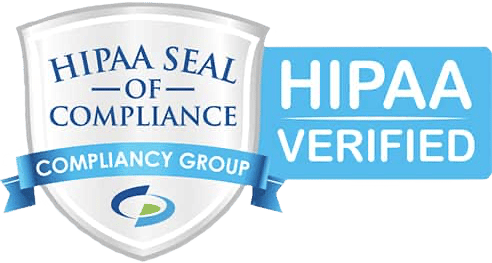Email remains one of the top modes of business communication (as it has for decades). Even with the proliferation of instant messaging and collaboration tools, there are still 3.9 billion people using these systems daily. This mode of communication is even popular with Millennials, with 73% of individuals in that age group preferring to receive corporate information via email.
Of course, there are plenty of reasons why employees feel that way. After all, email is an easy, reliable, and cost-effective way to communicate, with several user-friendly platforms available.
Email is not without pitfalls. During the pandemic, many office workers have transitioned to remote work, leading to a lack of security due-diligence and oversight from employers and tech teams. However, from advanced cybercrime to non-compliance concerns, many of the potential vulnerabilities of email are easily avoidable if you implement one key solution: email encryption. Without these technologies in place, MSPs and their clients are opening themselves up to the possibility of reputational damage and financial losses, if not permanent closure.
Whenever a customer’s cybersecurity initiatives fail, the blame almost always falls on the IT service professional providing the application. You can completely avoid the most severe consequences by implementing practical and easy to use encryption solutions with every client.
Let’s take a closer look at the factors playing into today’s uncertain and dangerous cyber-environment and how email encryption factors into the equation.
1. Cybercrime
As with any technology, there is always an imminent threat of cybercriminals exploiting electronic mail, from phishing, ransomware, and spear-phishing attacks to Business Email Compromise (BEC) scams. Hackers are experts at social engineering. Those cybercriminals love to trick users into downloading malware through infected attachments or clicking on links to malicious sites or duping them into sending back proprietary or personal information. No matter how much MSPs and businesses educate end-users, these ploys continue to succeed. Of course, when people keep falling into these traps, more cybercriminals will employ similar, if not more enhanced versions of those tactics.
2. Changing Work Environments
Evolving workplaces have put extra stress on corporations to protect their data from wrongdoers who would sell it on the Dark Web or demand a ransom for its return. With the rapid adoption of WFH (work from home), staff members are more likely to ignore security practices and be less diligent in sifting out suspect messages. Combine those concerns with a lack of experience working in new environments and employees, and you can see how easy it is to fool people into falling for phishing schemes. IT service providers must ensure their clients’ data and networks remain safe, even outside corporate firewalls. Utilizing encryption will hold end-users more responsible for slips and prevent them from divulging sensitive information accidentally.
3. Email Compliance
Virtually every business has to adhere to some regulation or compliance requirement. For example, healthcare providers must comply with HIPAA and HITECH, whereas financial institutions need to meet GLBA guidelines. All of these industry standards and regulations require or highly recommend the use of email encryption to safeguard information.
Organizations must fully comply with these rules, no matter the industry or where employees are working, or on what devices they are storing data. People often send sensitive messages via email. Adding email encryption to the mix ensures that no one but the sender, recipients, and other authorized individuals can access that information. Implementing a solution that ensures the safe sharing of data is a cheap option when considering the high-dollar fines they could incur for non-compliance.
The single best way to secure data in transit is through multi-layer encryption. When data converts into ciphertext, only those with the key or password can read that information. An algorithm puts the words into a random line of numbers with no pattern, making it impossible to decipher without the key. Of all the cybersecurity technologies MSPs commonly use, encryption is the most impenetrable.
4. User-friendly Email Encryption
Not all encoding platforms are created equal. Traditional encryption solutions are confusing, typically forcing users to follow a series of complicated steps to create, accept, and open each message. Employees also have to remember or securely store a variety of login credentials, which can prevent MSPs from getting buy-in on implementation and adoption. If an encryption solution is not user-friendly and straightforward, you may as well forget about pitching it to clients and prospects.
Thankfully, Mailprotector’s Bracket is everything you could ask for in an encryption solution. The platform makes sending and receiving encoded messages simple, with no compromises on the security side. Sending a secure message is as easy as wrapping the subject in brackets. Receiving is just as simple, requiring a click on a link to access the text and files. Unlike other solutions that are limited to specific devices and operating systems, Bracket delivers cross-platform functionality. Better yet, there are no logins, plugins, software, or apples for users to download (or MSPs to hear about later).
A Solution Your Clients Need Today
Adequate data protection is becoming more critical every day. No businesses can afford costly mistakes. With employees being the leading cause of data breaches and other cybersecurity compromises, they need a more secure way to share data.
IT service providers have always had their hands full trying to circumvent human error. After all, one user’s unwise decision can reflect poorly on the MSP and impact them financially. With the right email encryption solutions, you can neutralize one of the most dangerous threats to you and your clients. Bracket’s patented process not only makes encryption easy, but it provides you and your clients ease of use (and ease of mind).

